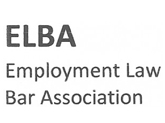
21st November 2016
A recent Which? survey revealed that 99% of people were unaware of their legal employment rights relating to pay cuts and redundancy. However, these results may not be as surprising as first thought, with many employees only becoming aware of many of their rights after seeking legal advice following an employment dispute.
Some of your legal rights are as follows:
Process of Redundancy
When deciding who is to be made redundant, employers should use a selection process that is both fair and objective. Ideally it should be based on performance, results, skills, experience, disciplinary record and overall contribution to the company, however there is not formula for a fair process and provided the employer applies the same process and selection criteria to everyone the process, if based on reasonable criteria, is likely to be legally fair.
Employees should not be selected based on their age, sex, race, religion or sexual orientation. The employer must follow a proper redundancy procedure, consulting with the selected employees about the next steps or any alternative employment proposals and informing them of the right they have to appeal against the redundancy. If an employee feels that a correct redundancy procedure was not in place or that they were selected unfairly, they may be able to claim that they were unfairly dismissed, as long as they have been employed by the company for at least two years, or one of the automatically unfair reasons for dismissal applies (Whether or not there has been an automatically unfair dismissal will depend on individual circumstances).
Redundancy Pay
An employee is entitled to redundancy pay if they have been employed by the company for at least 2 years, with the amount that they are due being dependent upon their age, their basic weekly wage and how long they have been employed by the company. The maximum statutory redundancy pay is £14,670, however an employee may be entitled to more based on their contract, or if the employer has a custom of providing higher payments, with up to £30,000 of redundancy pay being paid tax-free.
Changes to Pay and Contracts
Firstly, an employer has the right to freeze an employee’s wages, and the employee isn’t automatically entitled to a pay rise. Equally, an employer doesn’t have the right to reduce an employee’s wages either, unless the employee provides their consent. If an employer has to reduce wages to avoid making anybody redundant, the employee still has the right to raise a grievance with their employer, and the employee could therefore be able to bring a claim for unlawful deduction of wages.
As with wages, employment contract terms cannot be changed by the employer by simply giving the employee notice, and if the proposed change is not permitted within the contract, the employee may be able to claim for a breach of contract.
Notice
– If selected for redundancy an employee is entitled to a minimum of one week’s notice. After two years continuous employment a person is entitled to one week’s notice for each full year of employment, up to a maximum of 12 week’s notice.
A contract between an employee and a company may entitle the employee to a larger notice period, but it cannot state that they are entitled to less than the statutory minimum.
References
After leaving employment, there is no automatic entitlement to receive a reference, although an employer will often provide one as it is good practice. Although an employee cannot do much about receiving a negative reference, they may be able to claim against the employer if it is an inaccurate representation of them.
Grievance Procedure
An employee has the right to raise a formal grievance with their employer, if they have any problems within the workplace, with a meeting being held to discuss any issues. When dealing with the grievances from an employee, the employer should use the ACAS Code of Practice as it provides guidelines that should be followed.
Right to Appeal
If an employee is unhappy with the outcome of a grievance that has been raised, they have the right to appeal against their employer’s decision. The employer also has an obligation to inform employees of this right, and if it is exercised, they must hold a meeting with the employee without delay.
Unfair Dismissal
An employee cannot claim for an unfair dismissal unless they have been employed for at least 1 year, with very little protection during their first year of employment. An employer can dismiss a first year employee without justification. Despite it not being a suitable justification for dismissing somebody after a year of employment, something as simple as a personality clash can be the reason for dismissal. However, even during the first year of employment, a claim of discrimination based on sex, race, age, religion, disability or sexual orientation can be made at any time if the issue is covered by one of these elements of discrimination.
Employment Tribunal Claims
In order to bring a claim to an employment tribunal, an employee must have three months remaining before the termination of their employment, or they risk being time barred, with only very limited exceptions to the time limit.







